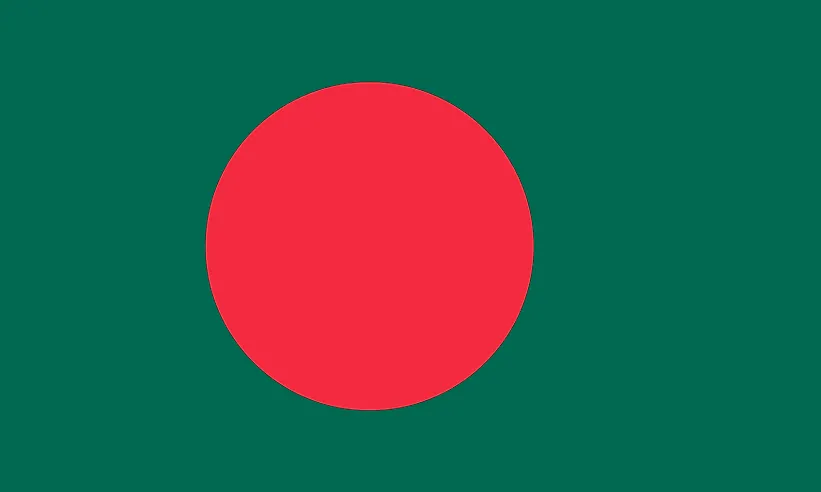
Bangladesh
| Continent | Asia |
| Capital | Dhaka |
| Population | 156,186,882 |
| GDP | $628.00 Billion |
| GDP per Capita | $3,900 |
| Dialing Code | +880 |
| ISO Code (2-letter) | BD |
| ISO Code (3-letter) | BGD |
Bangladesh Landscapes






About Bangladesh
Welcome to Bangladesh, a nation where ancient traditions meet modern aspirations along the fertile delta of the Ganges, Brahmaputra, and Meghna rivers. Home to approximately 165 million people in an area of 147,570 square kilometers, Bangladesh is one of the world’s most densely populated countries. Despite facing numerous challenges, this South Asian nation has emerged as a model of economic growth and social progress.
Geographic Features and Natural Beauty
Bangladesh’s geography is dominated by the world’s largest delta system, created by three major rivers that give the country its distinctive landscape. This vast network of waterways, numbering over 700 rivers, has earned Bangladesh the nickname “Land of Rivers.” The fertile alluvial soil supports lush vegetation and diverse agriculture throughout the country.
The Sundarbans, the world’s largest mangrove forest and a UNESCO World Heritage site, spans the southwestern coastal region, providing habitat for the royal Bengal tiger and numerous other species. In the northeast, the tea gardens of Sylhet create rolling green landscapes, while the Chittagong Hill Tracts in the southeast offer a stark contrast to the country’s predominantly flat terrain.
Cox’s Bazar, boasting the world’s longest natural sea beach at 120 kilometers, stretches along the Bay of Bengal, offering spectacular views and becoming an increasingly popular tourist destination.
Cultural Heritage and Traditions
Bangladeshi culture is rich in literary, artistic, and musical traditions, with influences from both Bengali and Islamic heritage. The Bengali language movement of 1952 played a crucial role in shaping national identity, and International Mother Language Day (February 21) is now observed globally in recognition of this historic struggle.
Traditional arts and crafts, including muslin textiles, jamdani weaving (a UNESCO Intangible Cultural Heritage), and nakshi kantha (embroidered quilts), showcase the nation’s artistic excellence. Bengali cuisine, known for its subtle flavors and use of fish, rice, and mustard oil, reflects the country’s riverine geography and agricultural abundance.
The celebration of Pohela Boishakh (Bengali New Year) and numerous religious festivals throughout the year demonstrate Bangladesh’s secular and inclusive cultural character.
Historical Journey
Bangladesh’s history spans ancient civilizations, medieval sultanates, and colonial periods. The region was part of British India until 1947, when it became East Pakistan. The struggle for independence, led by Sheikh Mujibur Rahman, culminated in the Liberation War of 1971, establishing Bangladesh as a sovereign nation.
The country’s journey since independence has been marked by both challenges and achievements, including natural disasters, political transitions, and remarkable progress in social development and economic growth.
Modern Economic Landscape
Today’s Bangladesh has emerged as one of Asia’s most remarkable economic success stories. The country has maintained consistent GDP growth, averaging over 6% annually for the past decade, largely driven by its robust garment industry, remittances from overseas workers, and growing agricultural productivity.
The ready-made garment sector has made Bangladesh the world’s second-largest clothing exporter. The country has also made significant strides in poverty reduction, education, and healthcare, achieving many Millennium Development Goals ahead of schedule.
Digital Bangladesh, a government initiative to modernize services and promote technology adoption, has spurred innovation and entrepreneurship across the country.
International Relations and Global Position
Bangladesh maintains active participation in international affairs through membership in organizations such as the United Nations, Commonwealth, and SAARC. The country has gained recognition for its leadership in climate change advocacy, peacekeeping missions, and refugee humanitarian response, particularly in hosting Rohingya refugees.
Did You Know?
• Bangladesh is home to the world’s largest river delta system, formed by the confluence of three major rivers?
• The country has provided more personnel to UN peacekeeping missions than any other nation?
• Bangladesh’s microcredit pioneer, Muhammad Yunus, won the Nobel Peace Prize in 2006 for his work in poverty alleviation?
• The Royal Bengal Tiger, found in the Sundarbans, is Bangladesh’s national animal and the largest of all tiger species?
Conclusion
Bangladesh stands as a testament to human resilience and potential, having transformed from a war-torn nation to an emerging economic power. From its vibrant cultural heritage to its dynamic economy, from its natural wonders to its technological aspirations, Bangladesh continues to progress while facing contemporary challenges. As it addresses issues of climate change, urbanization, and sustainable development, Bangladesh remains committed to its path of inclusive growth and social progress.